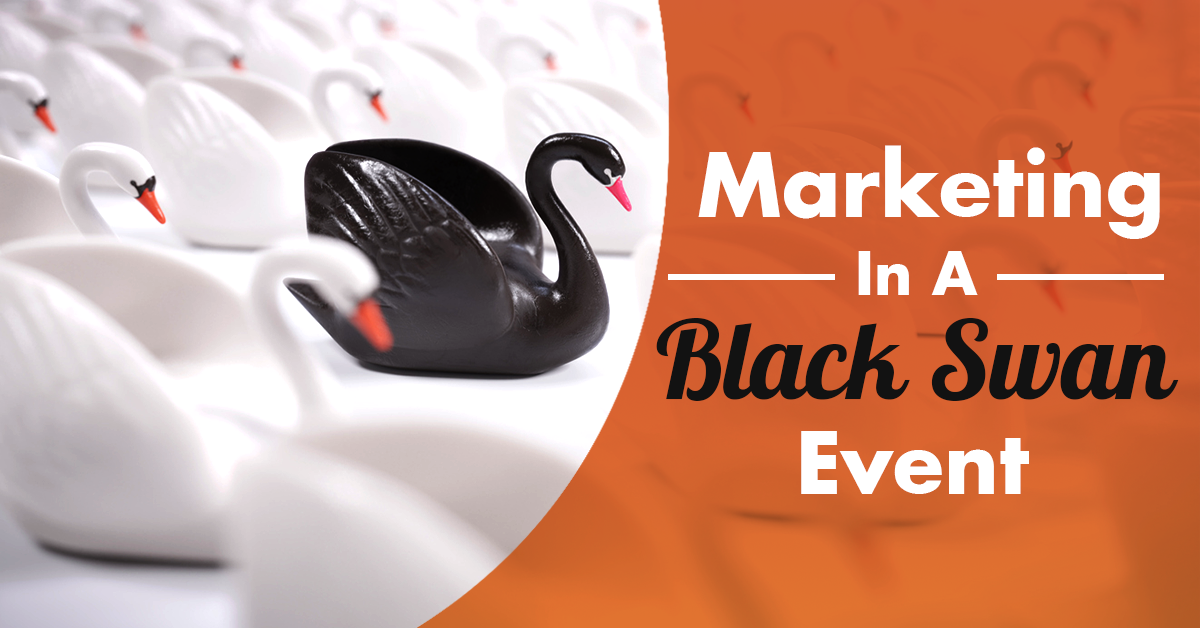Hope for the Best, Prepare for the Worst
By definition, a black swan event is something that we couldn’t have seen coming, so go easy on yourself. It’s okay if your brand was not prepared for this because virtually none of us were. But if you don’t have a plan by now, you need to start making one. Before you decide on the messaging you want your business to promote, you need to be prepared for every worst-case scenario possible. Having a plan of action will not only make the business run smoother, but it will make marketing your business that much easier. Not sure what you should be preparing for? Here are some potential scenarios to keep top of mind during the COVID-19 crisis- What will be your course of action if you don’t have enough protective gear for your technicians? What will you do if you receive customer complaints about techs not wearing their protective gear?
- The economy is on a steep decline, which means banks are less likely to approve customers for financing. What steps can you take to make sure you can still sell your services to customers who have been denied financing?
- What are you doing to protect your employees? Your techs are the frontline of your business and if they feel unsafe, they might not perform up to standard or they might not show up at all.
- What will you do if your business is forced to shut down? What happens to your business if you or your employees catch the virus and are put into quarantine? Do you have a network of support you can rely on? What government assistance can you apply for?
The Human Approach
It’s important to remember why we’re even having this discussion in the first place. People are scared. People are grieving. People are falling into economic trouble that doesn’t appear to have an easy fix. Business owners and marketers alike need to remember that the numbers and analytics we look at day-to-day have very real people behind them. If we want those numbers and analytics to stay where we want them, then we’ll have to remember that. For this reason, we need to take a human approach to marketing. Show, don’t tell, audiences what we are doing to help our customers, our teams and our communities. Take action and provide value to your customers. One tried and true way to do this is through philanthropic initiatives. Philanthropic efforts are a great way to show your audience what matters to your brand. It shows them that your brand is engrained in the community and is dedicated to serving it – even in the direst of straits. If you do take this approach, it is okay to use it to your advantage from a marketing standpoint, but remember to maintain authenticity while you do it.Audit Your Channels
Every marketer worth their salt works hard to avoid being accused of tone-deafness. This is generally a straightforward and easy thing to do if the marketer is aware of current events, familiar with every inch of the industry they are marketing in, and double-checks everything they say on the behalf of a brand. However, during a global crisis, this process becomes significantly more imperative. Attention to detail, empathy and strategy are all important aspects for avoiding the dreaded ‘tone-deaf’ accusation. Business owners and marketers need to audit every channel for messaging that might be insensitive or might be perceived the wrong way. Comb through planned social media posts, television ads and other content that may already be scheduled to air first. Then make a strategy for future content.Deciding What Is and Is Not Tone-Deaf
We could warn you about the dangers of insensitive marketing messaging all we want, but it will do little good if you don’t know how to spot it. Here are some key approaches to avoid when marketing during a crisis:- Any messaging that comes off as predatory is a huge turn-off for audiences. Messaging that is overly opportunistic puts a bad taste in the mouths of consumers. Capitalizing on human suffering isn’t a good look for anybody.
- Don’t treat this like a joke. There is a time and a place for humor but a global pandemic is neither the time nor place. While it’s important to find moments of levity in times of crisis, people don’t want that levity coming from brands. Humor is so subjective and it can very easily be misconstrued.
- If you’re unsure about how a message will be taken, a good rule of thumb is to avoid using it. Have a trusted colleague look at your messaging and always think twice before pressing send. The internet is forever, and that is a lesson you don’t want to learn the hard way.
- While it’s not necessarily tone-deaf, we really do advise avoiding the same phrases that everyone else is using. An audience can only hear “during these uncertain times” so many times before it becomes white noise. Instead, try personalizing these phrases. Make them more authentic to your brand by weaving in your own signature taglines and messaging.

